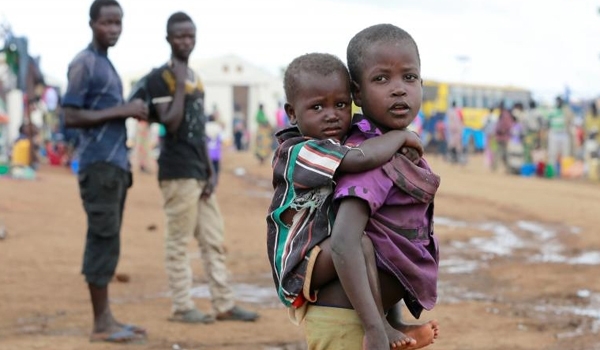
On Europe’s Problem with African Migrants

That’s according to International Organization of Migration, which has published new numbers through its Missing Migrants Project report. Since 2014, more than 7,400 men, women and children have died in transit across Africa, the new records show. These figures fail to capture the true scale of the tragedy, as they represent only fatalities which have been reported.
The data are supported by interviews conducted by the Monitoring Mechanism Initiative in West, North and East Africa between December 2018 and April 2019. Records show that thousands of people lose their lives as they journey through North Africa. However, deaths in this region are not well documented, and the true number of lives lost during migration remains unknown.
Moreover, African migrants who risk perilous sea crossings to Europe are often assumed to be illiterate, jobless chancers in desperate bids to flee stagnation and rampant corruption in their home countries. But a new survey of irregular African migrants in Europe found them to be more educated than expected, while many of them were leaving behind jobs back home that paid better-than-average wages.
While economic factors do indeed drive many Africans to irregularly migrate across the Mediterranean Sea, a new United Nations report provides some startling data that could change the way migrants are perceived in Europe. The report finds that getting a job was not the only motivation to move and that not all irregular migrants were poor in Africa or had lower education levels.
The report, called Scaling Fences: Voices of Irregular African Migrants to Europe, also found that more than 90 percent of those surveyed were undeterred by risky sea crossings and other dangers and would brave such a journey again. Researchers interviewed 1,970 migrants from 39 African countries who had traveled without official papers and lived in 13 European nations. They had migrated primarily for job prospects and were not seeking asylum.
They found that the undocumented migrants had often not been struggling by African standards. Some 58 percent either had a job or were in school at the time they decided to take a risky journey north. On average, the respondents had three more years of education under their belts than peers. For those who were leaving jobs in their African homelands, they tended to have commanded better-than-average wages.
Still, money was a big motivating factor to leave. About half of the respondents who left jobs said they had not been earning enough. Wages earned in Europe were typically much higher than those paid back home.
At any rate, the report is meant to paint a clearer picture of why irregular migrants move from Africa to Europe. The report calls for more opportunities and choices in Africa while enhancing opportunities to move from ungoverned to governed migration.
More so, jobs and money are not the only factors. Of those surveyed, 77 percent said they lacked a political voice back home, and 62 percent said they had been treated unfairly by their governments. Migration is a reverberation of development progress across Africa, albeit progress that is uneven and not fast enough to meet people’s aspiration.
The European Union has witnessed mounting migrant flows in recent years, with folks drowning at sea during perilous crossings in rickety boats and often getting stuck in sprawling, unsanitary camps in Greece and elsewhere. This has raised political tensions across the 28-nation bloc, with Italy and others adopting anti-immigrant policies and members struggling to agree on how to process and host new arrivals.
As it stands, the bloc has no system through which member states can share responsibility for hosting migrants in a fair manner. As a consequence, they continue to wrangle with one another over which of them should host the asylum seekers and other migrants who reach Europe’s shores. That said, the best way ahead is for the European Union to rethink assumptions about African migrants.
Source:FarsNEWS















